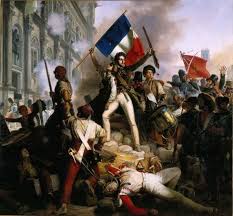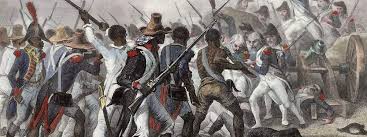What Is 1789 Known For?
The year 1789 is usually regarded as a watershed moment in world history, thanks largely to events in France. It is the start of the French Revolution, a series of political and social upheavals that fundamentally altered the direction of French, European, and world history. Aside from the revolution, 1789 is significant in American history because it was the year the United States Constitution was ratified, influencing the governance of the newly formed nation. This article will look at the major events of 1789, with an emphasis on the French Revolution, its global impact, and its broader historical significance.
The French Revolution: A Turning Point.
The French Revolution, which began in 1789, remains one of the most transformative events in contemporary history. It stemmed from profound economic, social, and political disparities in France in the late 18th century. The country was burdened with massive national debt, much of which had amassed as a result of France’s engagement in the American Revolutionary War. Furthermore, the French monarchy under King Louis XVI was experiencing a legitimacy crisis as it attempted to handle these financial concerns while preserving the lavish lifestyle of the royal court.

The Estates-General, which had not met since 1614, convened in May 1789, triggering the revolution. It was summoned by Louis XVI in a desperate attempt to overcome the financial situation by enacting new tax legislation. The Estates-General were divided into three groups: clergy (first estate), nobility (second estate), and commoners (third estate). Tensions immediately rose as the Third Estate, which represents the vast majority of the French people, sought greater representation and equitable treatment. This resulted in the founding of the National Assembly in June 1789, which was mostly made up of Third Estate deputies, and was the first step toward the disintegration of the old order.
On July 14, 1789, the revolution took a drastic turn with the storming of the Bastille, a fortress-prison in Paris that had come to represent the monarchy’s tyranny. This incident, commemorated yearly as Bastille Day, is largely recognized as the start of the French revolution. It proved the power of the people and their ability to question the authority of the ruling class. The fall of the Bastille triggered massive revolutions throughout France, resulting in the abolition of feudal privileges and the foundation of a constitutional monarchy.
In August 1789, the National Assembly passed the “Declaration of the Rights of Man and Citizen,” a key text that codified the ideas of liberty, equality, and fraternity. This declaration, influenced by Enlightenment intellectuals like Jean-Jacques Rousseau and Montesquieu, established the ideological basis for modern democratic movements. It affirmed individual rights, popular sovereignty, and the concept that government exists to serve the people, not the other way around. Though the French Revolution would last several years, often devolving into horrific violence, 1789 remains the pivotal year when the seeds of revolution were initially planted.
The Effects of the French Revolution on the World
The French Revolution had far-reaching ramifications that extended beyond the French boundaries. It caused shockwaves across Europe, upsetting the ancient monarchies and established social structures of the day. The concepts of equality, popular sovereignty, and human rights fueled revolutionary uprisings throughout Europe and Latin America. Countries like Italy, Spain, and Germany would eventually have their own revolutionary upheavals, frequently drawing inspiration from the events in 1789.
The French Revolution contributed significantly to the rise of nationalism. As the revolutionaries in France strove to destroy the old monarchy, they pushed the idea of a nation as a community of citizens rather than subjects devoted to a monarch. This ideology spread throughout many other places, fuelling nationalistic movements that reshaped governmental boundaries in the nineteenth and twentieth centuries.
Furthermore, the French Revolution had a significant impact on worldwide colonization and the struggle for freedom in many parts of the world. Enslaved Africans in the French colony of Saint-Domingue (modern-day Haiti) were inspired by the revolution’s values to rise against their colonial masters. The Haitian Revolution began in 1791 and eventually led to the foundation of the first independent in 1804.
United States: A New Nation
While the French Revolution dominated much of the global historical narrative in 1789, the year also had a profound impact on American history. It was the year that the United States Constitution took effect, replacing the Articles of Confederation and creating the structure for the country’s government. On April 30, 1789, George Washington, a respected figure from the American Revolutionary War, was inaugurated as the United States’ first president.

The Constitution established a structure of governance founded on the ideas of checks and balances, separation of powers, and federalism, guaranteeing that no single branch of government grew too dominant. It also established a Bill of Rights, which protects essential liberties such as free speech, religion, and assembly. In many ways, the American experiment in republicanism and democracy provided an alternate model to the one unfolding in France, and the two revolutions are frequently studied together.
1789 is remembered as a pivotal year in world history, particularly for its significance in the French Revolution. It was a year of profound social transformation, political turmoil, and the dissemination of revolutionary principles that would create the contemporary world. Whether through the storming of the Bastille or the adoption of the United States Constitution, 1789 marks the start of a new era in which concepts of liberty, equality, and democracy will permanently change the path of history.


Thanks for the history lessons. Looking forward to reading more about Nigerian history
Thanks bro